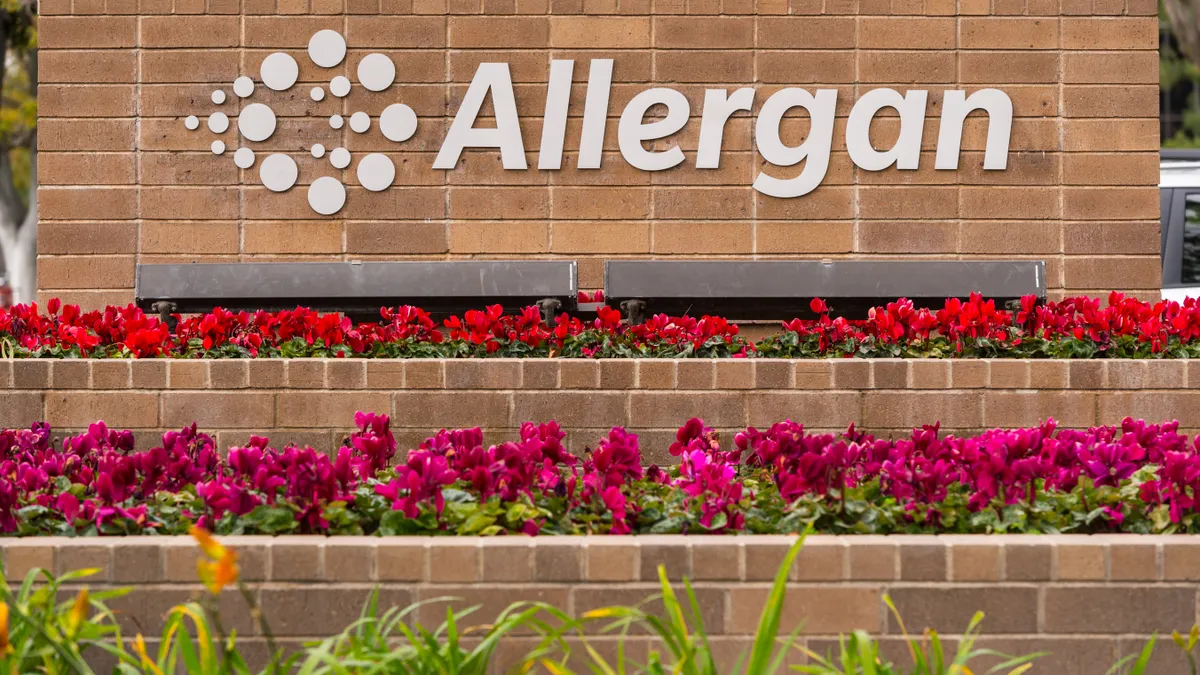Dive Brief:
- Global breast implant sales from medical aesthetics manufacturer Allergan fell more than 30% year over year, the company reported in first quarter earnings Tuesday morning.
- Despite FDA announcing last week it will not take any textured implants off the U.S. market, the European Union's decision last December to no longer allow Allergan's textured implants diminished international sales during the first quarter, and regulators in France, Canada and other countries have since taken similarly restrictive actions.
- Still, Allergan executives downplayed the long-term impact of the ban of the products in some foreign countries, noting that 70% of the company's implant sales happen in the U.S., where the market already is heavily tilted toward use of smooth implants.
Dive Insight:
The roughly 75% year-over-year decline in international sales of breast implants matched the drop seen in the fourth quarter following Allergan's E.U. market withdrawal of textured implants and tissue expanders.
In the U.S., FDA held a much anticipated public advisory committee meeting on breast implant safety with a week left in Allergan's first quarter. The meeting came after FDA highlighted adverse event reports indicating hundreds of instances of breast implant associated anaplastic large cell lymphoma (BIA-ALCL), a rare cancer found in scar tissue and fluid surrounding an implant, including at least nine cases tied to U.S. deaths. Textured implants, particularly one of Allergan's Biocell models, have been more frequently cited in those BIA-ALCL reports compared to smooth counterparts.
In the weeks following the meeting, regulators in France, Canada and other countries opted to suspend Allergan's marketing license for certain Biocell implants, actions not factored into first quarter revenues. FDA ultimately took a different approach, announcing last week it would focus on bolstering the informed consent process for patients and aim to better collect and share postmarket data.
Allergan management on the call called the FDA meeting "very constructive" and said they "expect stable business" going forward. Executives noted international guidance has been adjusted accordingly and that 70% of the company's breast implant business is sold in the U.S., where 90% of the implants sold are smooth.
Indeed, U.S. sales of Allergan implants were up about 1% during the quarter. The outlook may be similar for Allergan's competition, with representatives from Sientra and Mentor indicating at the FDA meeting their breast implant sales also now skew heavily in favor of smooth implants.
Even with the decline in breast implant sales abroad, Allergan's medical aesthetics unit was up about 2% on the quarter, thanks to revenue growth from the company's Botox and Juvederm brands. Breast implants accounted for less than 10% of the unit's nearly $650 million in revenue.
On the whole, breast implants are a relatively small concern for Allergan, which posted an overall operating loss of $2.31 billion. Shares in the company were down more than 4% Tuesday morning.











